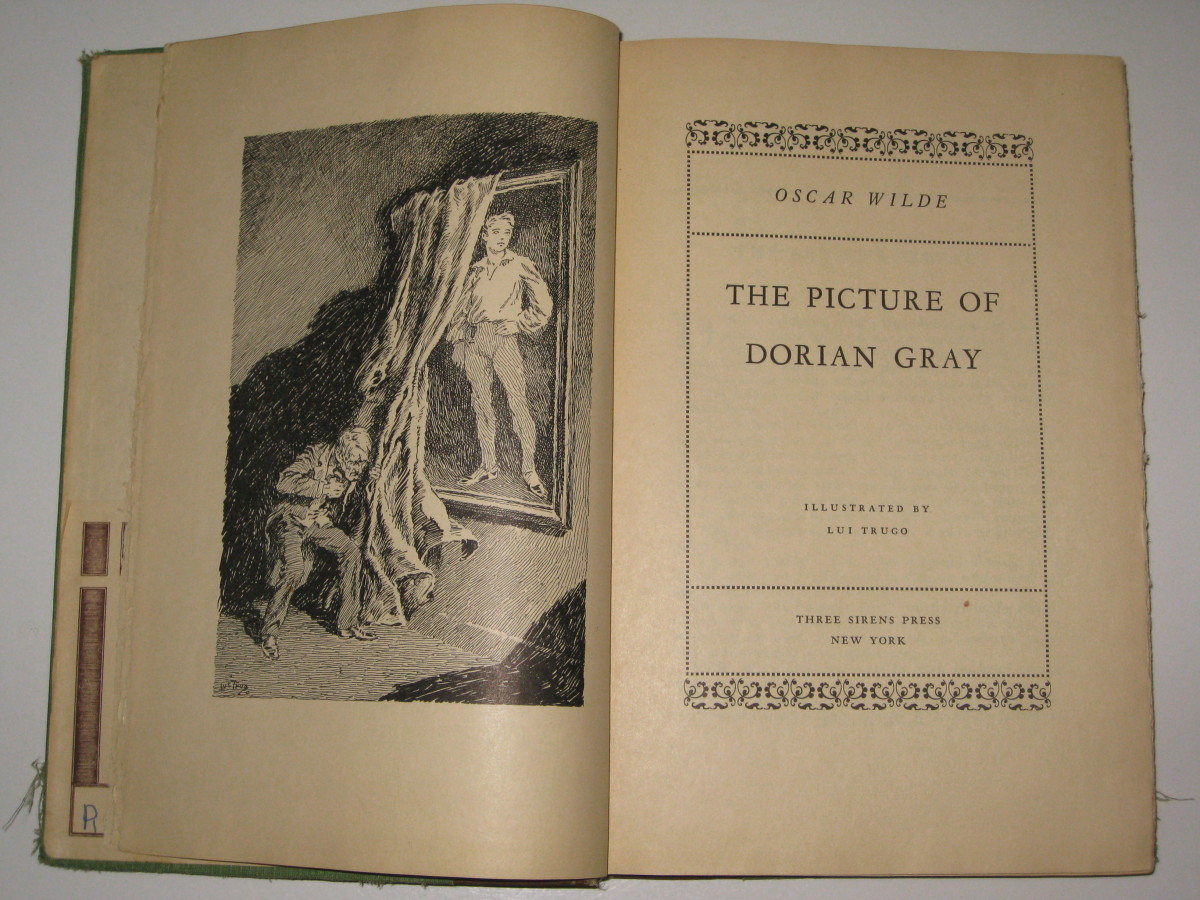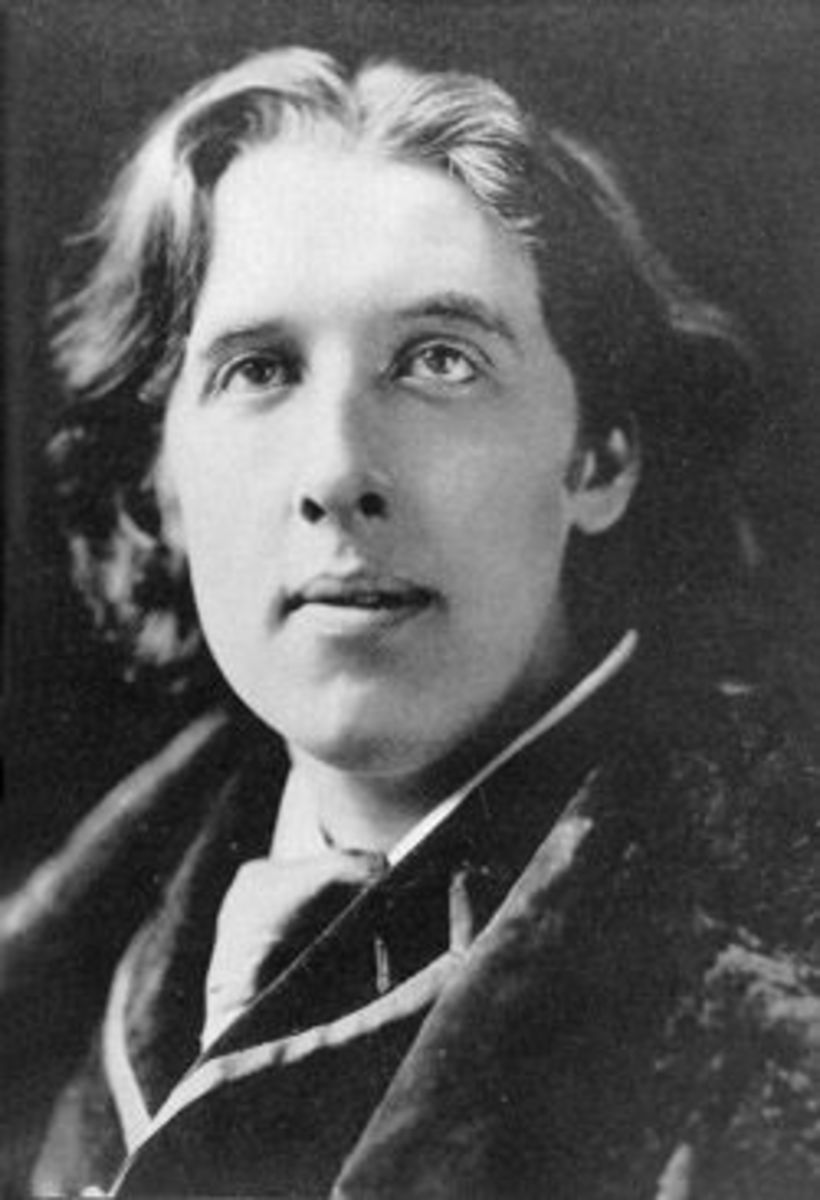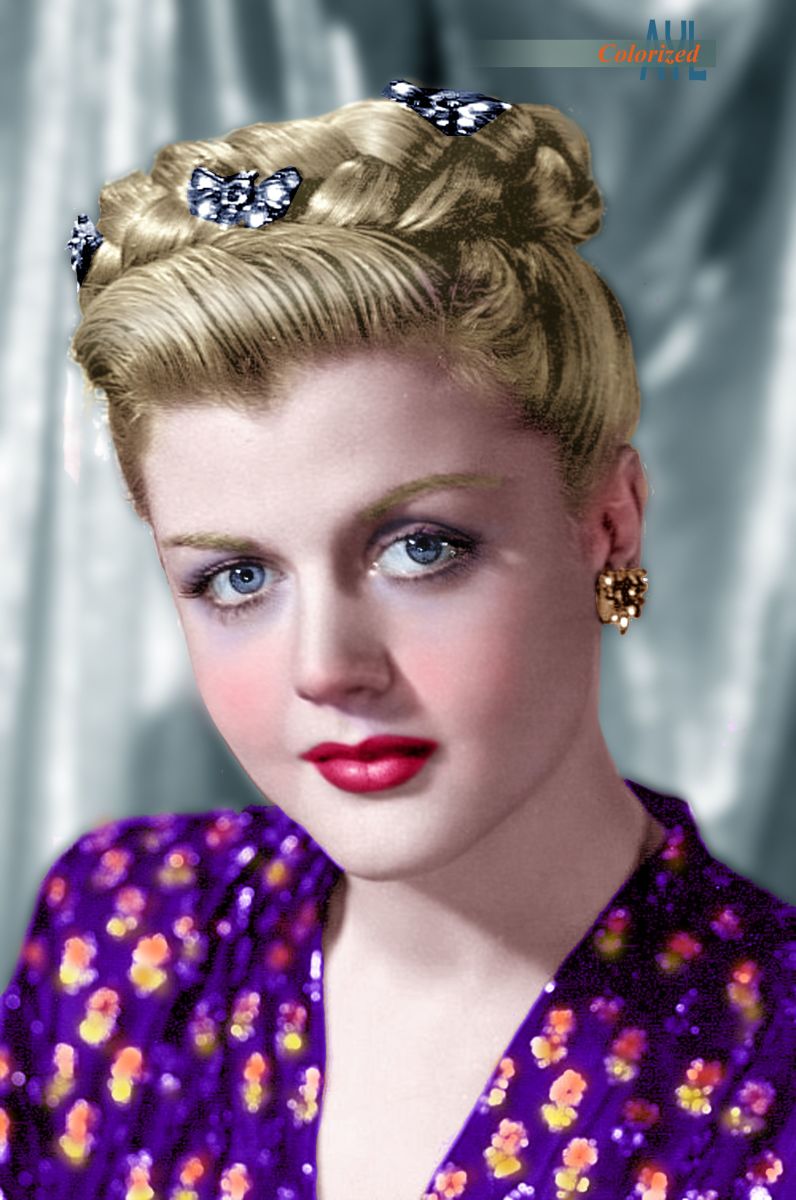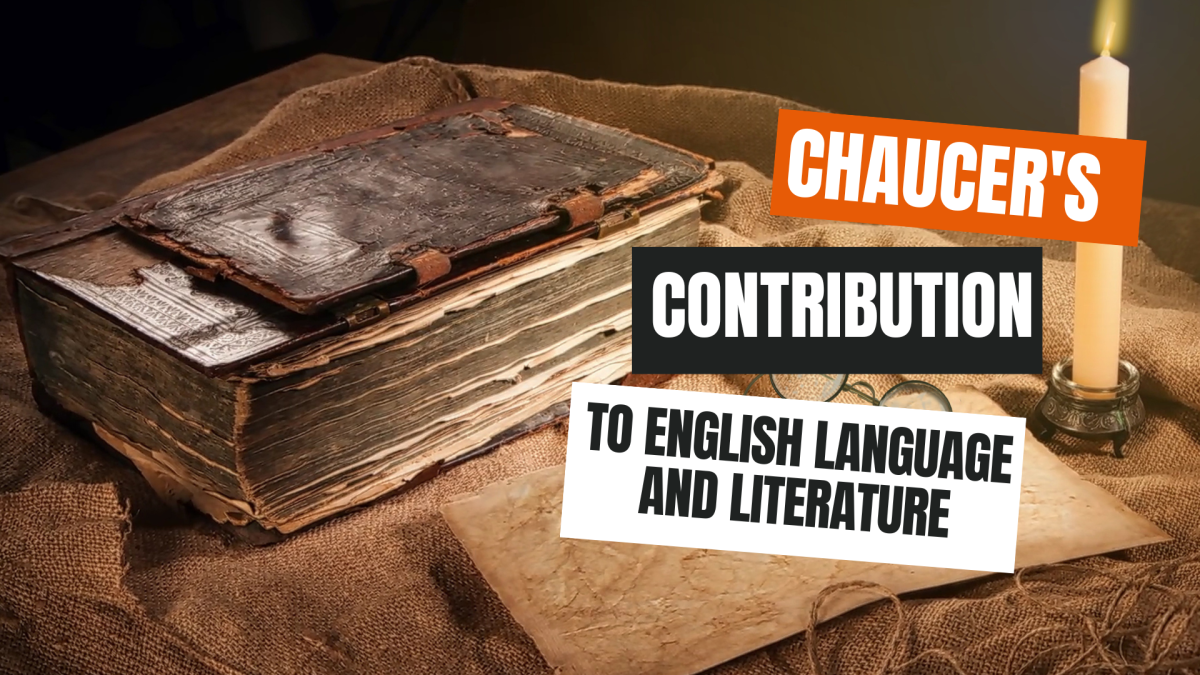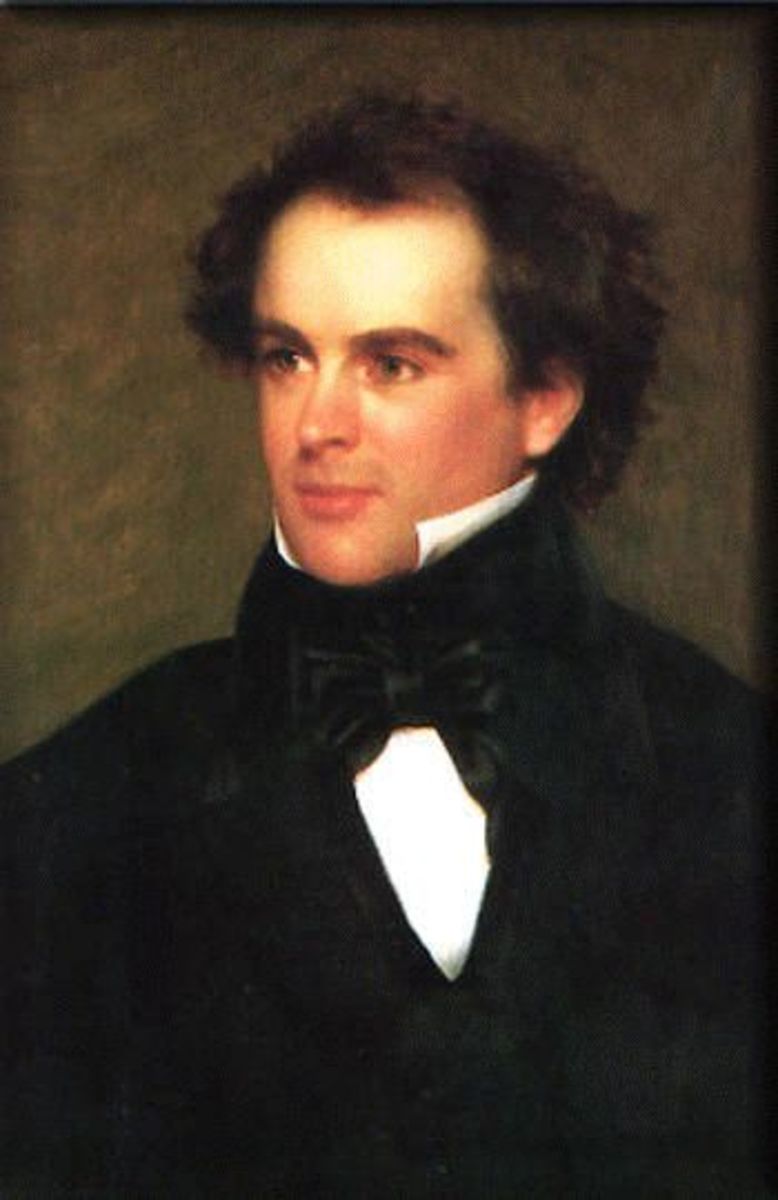Dorian Gray: the tragedy of the soul
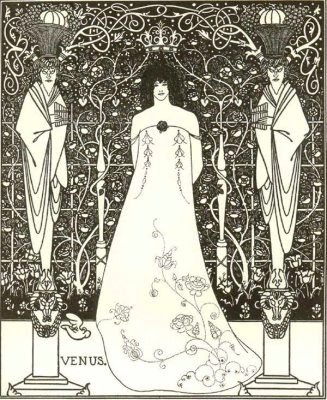
"All art is at once surface and symbol.
Those who go beneath the surface do so at their peril.
Those who read the symbol do so at their peril."
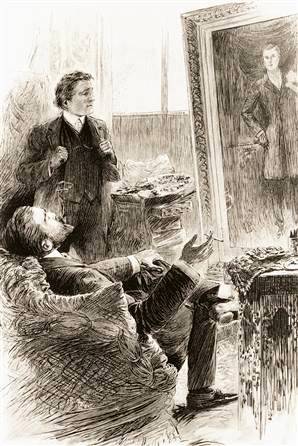
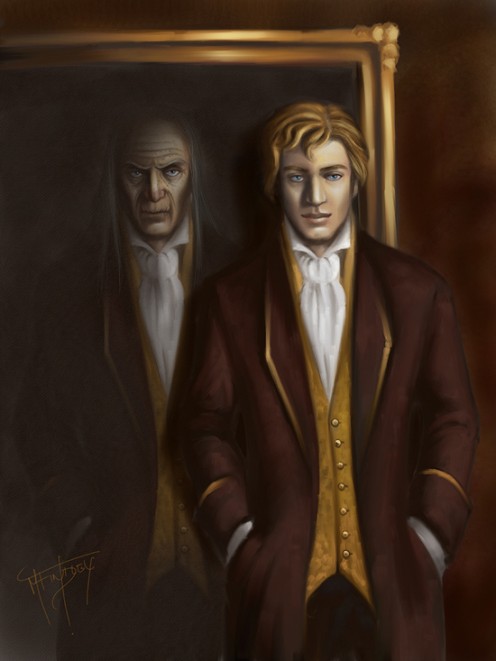
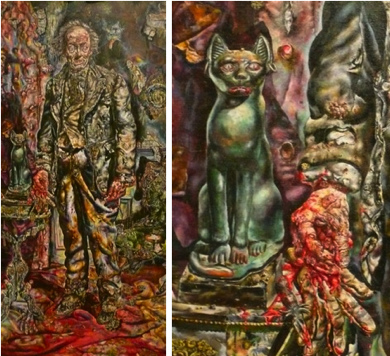
Introduction
This hero is not a human being but the embodiement of a philosophical idea: the selling of the soul in exchange for eternal youth.
This embodiement has the name of Dorian Gray, a rather whealthy and beautiful Englishman with aristocratic connections, that has his portrait painted by his best friend, Basil. The artist Basil, obsessed and inspired at the same time by the supernatural beauty of Dorian, is about to complete his masterpiece; as Dorian poses, Lord Henry Wotton, the detached observer, tempts him- as Mephistopheles did with Faust in Goethe's masterwork- with words that stir him like music: "Ah! realize your youth while you have it...Live the wonderful life that is in you!" As soon as the portrait is finished, and when Dorian sees it, a look of joy comes into his eyes "as if he had recognized himself for the first time."
Entranced by the beauty of the portrait, in a mystic atmosphere, he expresses the impossible wish that he could remain the handsome youth that it depicts, while the portrait grows old in his stead: the sense of his own beauty comes to him as a revelation, this makes him to express the foolish words: "If it were I who was to be always young, and the picture that was to grow old...I would give my soul for that!". The wish is granted but the portrait becomes Dorian's visible consciousness, the visible Self: the picture had become endued with terrible significance.
With every evil deed he commits, absolved from the fear of old age, physical decay and death, the portrait alters until it becomes the gruesome picture of his destroyed morality and spirit: the once-glorious picture degenerates grotesquely. Hidden away in the protagonist's home, the increasingly misshapen canvas bears supernatural witness to this attractive youth's secret life of sin: "the rotting of a corpse in a watery grave was not so fearful." Finally, at Dorian's death, caused by himself in a fit of rage and disperation, the youth and the beauty which have been miraculously preserved in him are transferred back to the portrait, while he himself become "withered, wrinkled and loathsome of visage."
The Picture of Dorian Gray 1976
The novel's decadent aura and particularly its tinges of homoeroticism, provoked an almost unprecedently hostile reaction in British press: Wilde's novel was also attacked for its perceived lack of a moral message, but "those who find ugly meanings in beautiful things are corrupt without being charming. This is a fault." In fact, the motto of the aestheticists is to elevate beauty above truth and glorify it as their only deity, and for them art embodies the absolute autonomy, a total superiority over other aspects of life, first of all the falsity of moral conditions- Wilde is just one of the leading figures of this movement, Lord Henry himself is one of the foremost aestheticists.
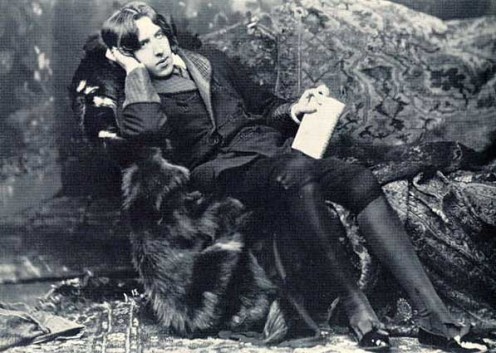
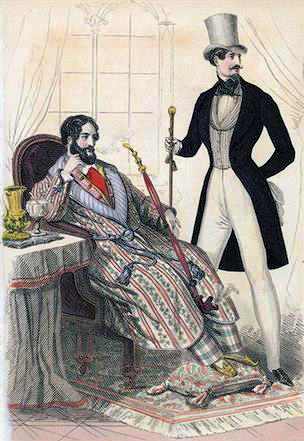
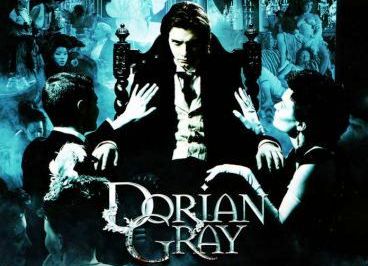
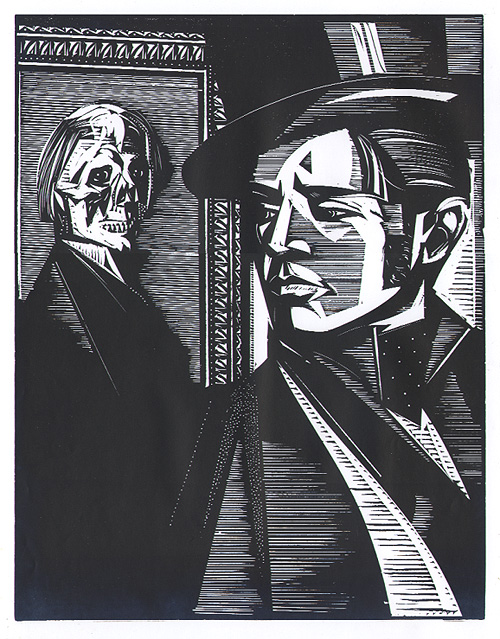
The yellow book
The yellow book, a gift from Lord Henry, in which "things that he had dimly dreamed of were suddenly made real to him. Things of which he had never dreamed were gradually revealed." Yellow was the colour of the fin de siécle and a synonym for the bizarre, artificial and modern; the yellow book, which indeed is said to poison Dorian Gray, is only one of many books with a yellow cover that belong to the French school of symbolysts and, last but not least, "The yellow book" was also the title of the most famous magazine for art and literature of that time.
In function, the book serves a similar purpose to that of Apuleius' Metamorphoses and in Marius the Epicurean by Pater, an intimate friend of Wilde in which the main character said: "in the prosecution of this love of beauty, he claims an entire personal liberty of heart and mind, liberty, above all, from what may seem conventional answers to first questions.", which exercised a powerful effect on the hero at a crucial stage of his development. For Dorian however, the poison book is less a formative influence than a distraction once he has committed his first self-defining act of objective cruelty toward his beloved Sibyl Vane, in something of the same way that the spectacle of the seven deadly sins feeds Faust's soul when he begins to waver: "Dorian Gray had been poisoned by a book. There were moments when he looked on evil simply as a mode through which he could realize his conception of the beautiful". At this, Lord Henry assures him that art is too aloof to influence anybody, but it is Dorian who is partly right: the book simply confirms Dorian in evil, he so now embarks upon a course of life which consciously embraces sin and destruction. The hero is indeed led astray by ideals (the portrait) as much as by decadence (the poisonous book): this lack of strenght as also his innocence will decide on Dorian's tragic end, but what is most true is that here, finally, a single character combines the traits of a beauty and a beast.
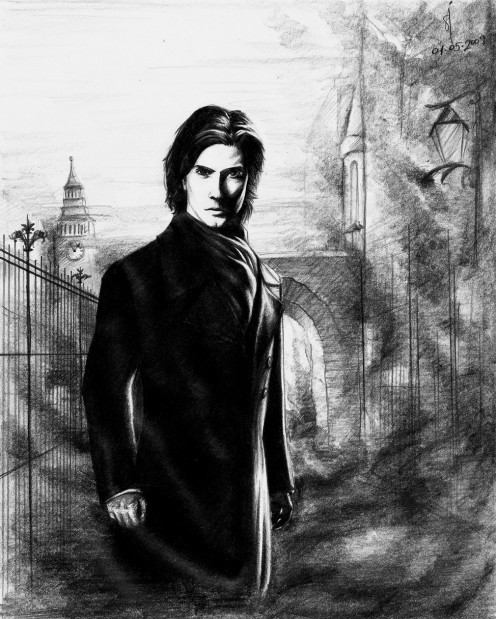
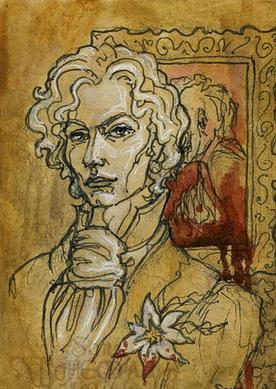
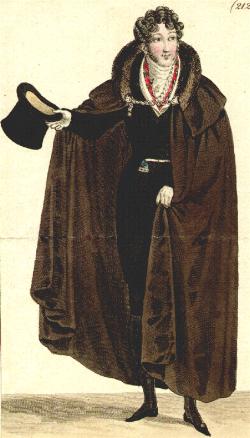
Paradoxes against the Victorian morality
In a letter Wilde stated that the main characters of the Dorian Gray are in different ways reflections of himself: "Basil Hallward is what I think I am; Lord Henry what the world thinks me; Dorian what I would like to be- in other ages, perhaps."
Oscar Wilde, in fact, painted much of himself into Lord Henry: toward the end of the Picture of Dorian Gray, the Duchess of Monmouth wonders jokingly what nickname Lord Henry Wotton might be known by, and Dorian instantly replies: "Prince Paradox". A flamboyant, brialliantly witty figure whose person and writings embodied the art-for-art's sake philosophy of the Aesthetic movement of late nineteenth century England: this much was Oscar Wilde. One of the main pleasures of Wilde's writings- and of Dorian Gray in particular- is our awareness that the author is taking astonishing risks, because, as he wrote: "Paradoxes are always dangerous things." This produces the existing tension in so many aspects: its artistic form and structure, its "moral" or philosophical position, and its revelation of Wilde's own views on art, his world and himself.
So the author himself is hidden behind this entertaining Prince Paradox: he gave him his own tall frame, wel-known languorous eyes, mesmerizing gestures of the hands, and the same musical, dreamy contralto voice that so many of Wilde's friends singled out for praise. He is exactly the delightful yet demoralizing celebrity that Wilde was, or played to be, on the rather dull, self-righteous stage of late- Victorian England. Wilde improves upon the definition of paradox when he has Mr. Erskine say, in Dorian Gray, "The way of paradoxes is the way of truth. To test reality we must see it on the tight rope. When the verities become acrobats, we can judge them." Testing verities is an exhilarating but dangerous game, especially during an era, like the Victorian, whose social and moral verities had been in place for so long and were still credited by so many Englishmen. Walter Pater, an idol of Wilde's early career and the main source of the aesthetic philosophy in Dorian Gray judged the work, marvelling at the author's "genial, laughter- loving sense of life", and he was delighted in the vivid story and "its very plain moral...to the effect that vice and crime make people coarse and ugly." And again, the moral side of the novel could be seen through Wilde's cynical wit against the married, the philanthropic, the middle-class: "Beer, the Bible and the seven deadly virtues have made our England what she is." Lord Henry tells the Duchess of Monmouth, along with the tale of the false moralism and the reaction against bourgeois hypocrisy and narrowness of mind: "Nowadays people know the price of everything and the value of nothing." At least, decadent naughtiness was the extreme, desperate counter-reaction to the repressive morality of Victorianism.
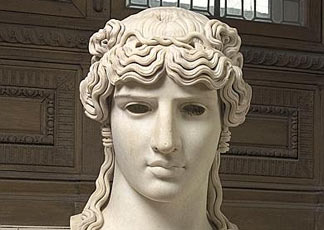
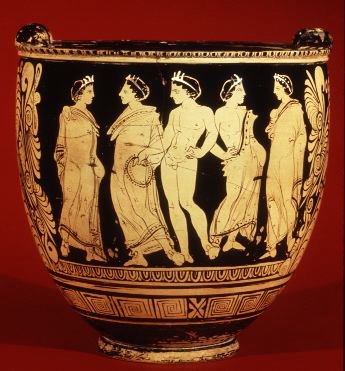
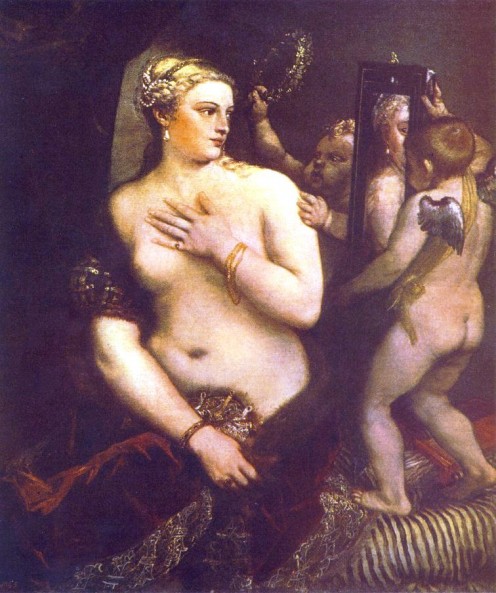
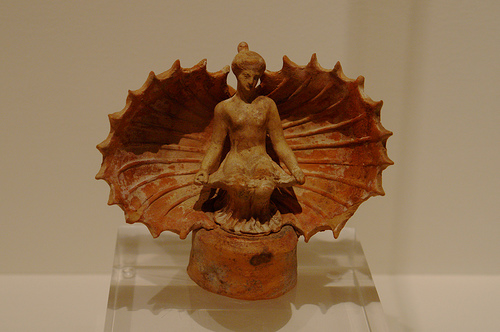
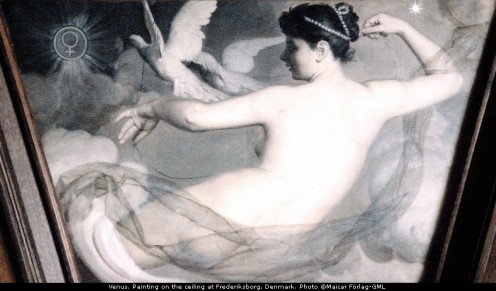
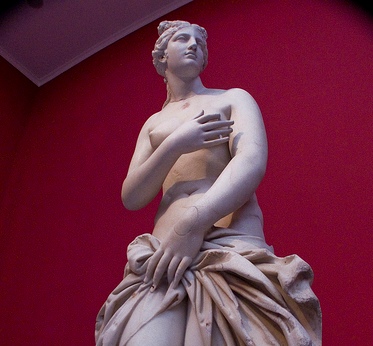
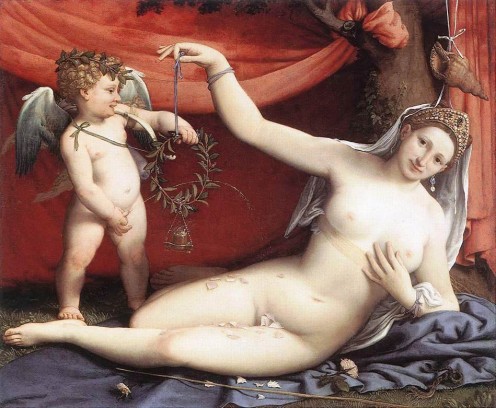
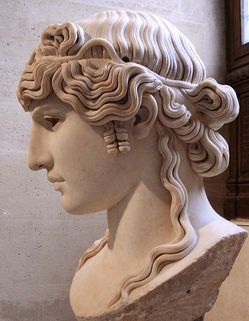
Beauty and Purity
Basil says Dorian defines for him "the perfection of the spirit that is Greek", the perfection of the ideal and of the past, it is thus natural for Lord Henry to contrast the splendid hellenic ideal with the maladies of mediaevalism since it was largely during the medieval period that beauty and art-for-art's sake came to be defined as sinful. Dorian, in the beginning, is described as having "the face of Antinous" and as being drawn by Basil sitting "on the prow of Adrian's barge." The Beauty here is reflected upon by the three characters: Basil's naïve conjunction of beauty and goodness (but indeed Basil does express his own desire in painting Dorian, he gives visible form to his own desire and idea while also helping both to make Dorian aware of his own beauty and also an inexaustible object of desire); Lord Henry's narrow perception of beauty as a sole source of gratification; Dorian' reductive view of beauty as a source of power: they are so far from the Idea as the sky is from the earth. To a degree, the desire of Dorian to experience existence to the fullest possible measure justifies Lord Henry's equation of Dorian's life with a work of art "Life has been your art. You have set yourself to music, your days are your sonnets." At the same time, for all his interest in new experiences and feelings, one sees most of Dorian's energy consumed by retrograde gestures that seek merely to hoard the sensations that he apprehends. Change and exchange of any sort repel him, the simply concern for his appearance moves quickly to a compulsive abhorrence of any sign of temporality, because it is only Time, all powerful, that can snatch away the beauty from existent things. Dorian is by nature susceptible to beautiful things and especially to his own beauty and youth, but his character misses the strenght not to become a victim of this susceptibility.
Wilde himself announced the real moral he had in mind: "The moral is this: all excess, as well as all renunciation, brings its own punishment, and this moral is so far artistically and deliberately suppressed that it does not enunciate its law as a general principle, but realizes itself purely in the lives of individuals, and so becomes simply a dramatic element in a work of art, and not the object of the work of art itself."
Basil, he explains, worships physical beauty far too much and is destroyed by the vanity he creates in Dorian; Dorian tries to kill the conscience and in doing so he kills himself. And Wilde added blisteringly: "Yes, there is a terrible moral in Dorian Gray- a moral which the prurient will not be able to find in it, but which will be revealed to all whose minds are healthy. Is this an error? I fear it is. It is the only error in the book." However, the purpose of Lord Henry's philosophy of a new Hedonism- "to teach man to concentrate himself"- was Wilde's own. But as the novel makes very clear, giving a person the freedom and courage to discover his own self guarantees nothing; Lord Henry himself says that whether one grows to become good (as Basil) or evil (as Dorian) is a matter of individual human nature. Dorian is emancipated at the story's opening for a voyage of self-discovery (that is why Basil is so afraid of the meeting between Dorian and Lord Henry), but in the end (confirming all terrors of his first, adoring friend) he finds a temperament that is filled with poisonous influences: when Basil looks with horror on his disfigured portrait for the first time, he thinks the foulness and horror have come from within the layers of paint itself, but we know they have come from within Dorian's own personal hell. Wilde has Dorian progress inexorably to the terrible realization "Myself am Hell", so near his end, Dorian cries, with a wild gesture of despair, and calls the soul "a terrible reality...it can be poisoned or made perfect." The tale ends with his wild longing for the purity of his youth, again against the Law of Time..."Grace was his (Dorian's), and the white purity of boyhood, and beauty such as old Greek marbles kept for us."
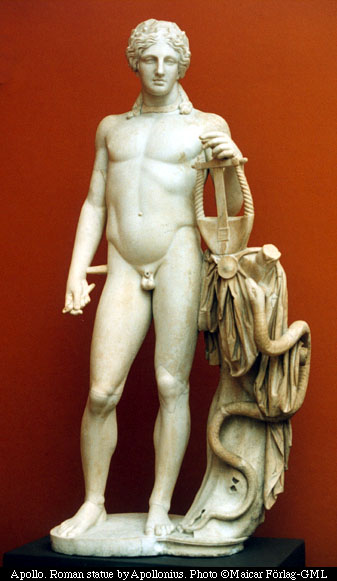
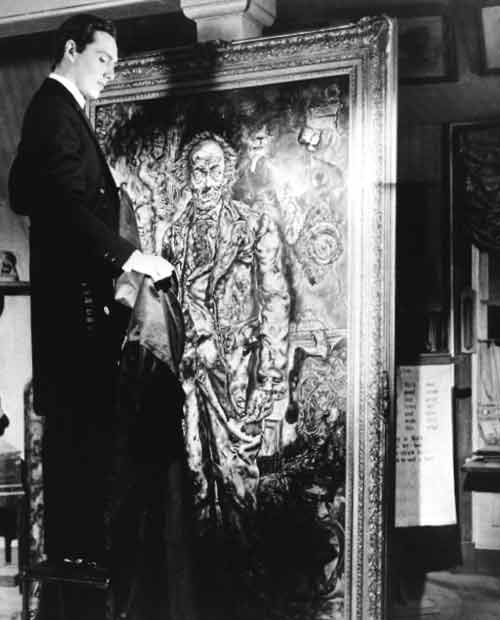
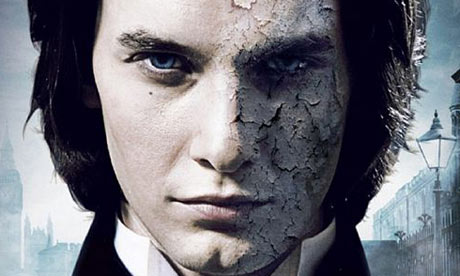
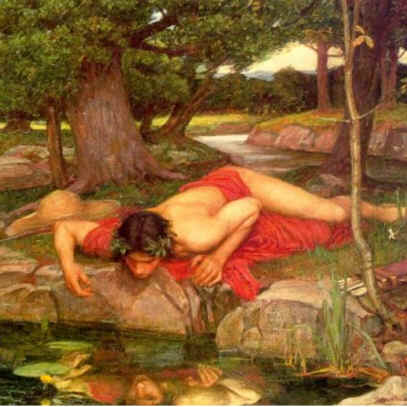
The highest of all duties
One of the most stricking things is a subtle moral, that is not obvious and that lurks beneath the surface: the supreme task of the individual is to realize fully and from within one's own identity. For istance, Wilde wrote on his comments: "man makes his end for himself out of himself: no end is imposed by external considerations, he must realize his true nature, must be what Nature orders." And at the same time he was revising Dorian, he observed that "Know Thyself" was written over the portal of the ancient world, but that "Be Thyself" should be written over the portal of the modern world.
The Self is viewed as the totality of each person's physical and mental being; hence Lord Henry's motto, which plays such a crucial role in the story: "Nothing can cure the soul but the senses, just as nothing can cure the senses but the soul." Basil's idealistic exclamation early in the novel, as a hymn to the perfection of Dorian -"The armony of body and soul- how much that is!"- announces this central tenet of Wilde's personal philosophy: solving the mystery of body and soul, the mystery of their mutual relationship must be the goal of every individual, so Wilde suggests. So I suspect that the immense value in Dorian Gray- what Wilde called its "strong ethical lesson"- was its emphasis on self-discovery, and so I don't think it is a mere coincidence that the most eloquent speech in the novel, uttered by Lord Henry, define true immorality as submission to the influence of others or of a complacent, philistine society: "People are afraid of themselves, nowadays. They have forgotten the highest of all duties, the duty that one owes to one's self."
However, in the end, the life-enhancing potentiality of self-definition only creates in Dorian a "monstrous vanity: a ghastly self-love". Dorian is verily the tragic Narcissus, with whom he is so often associated in the novel. Dorian himself is as a mirror to the readers- as the canvas is for him- and it was said: "Each man sees his own sin in Dorian Gray."
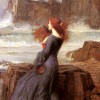
![Oscar Wilde in 3-Vol Box Set (Stories, Plays, Poems, Essays, Letters) [Folio Society 1993]](https://m.media-amazon.com/images/I/51LdZP221CL._SL160_.jpg)
